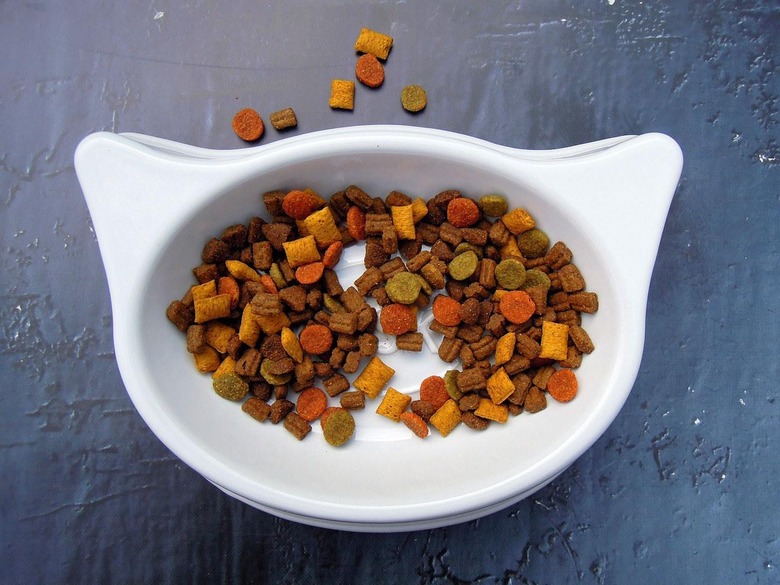Your Furry Pet's Meaty Diet Is Helping Fuel Climate Change
New research highlights an uncomfortable truth: humanity's favorite pets are contributing greatly to climate change. There's a good chance you have at least one dog or cat; maybe you have one of each or more. Those pets consume diets packed full of meat, and that's a problem for the climate, researchers say. Much like your own diet, the amount of meat your pet eats has a direct impact on our planet.
It is well known that meat consumption has a big impact on the planet — that meat, after all, comes from animals that spent their lives eating grains that first had to be grown, that itself requiring ample water and energy. While people are decreasing their meat — and particularly their beef — consumption in increasing numbers, there's a less talked about flip side to the issue: the amount of meat in your pet's diet.

UCLA geography professor Gregory Okin recently crunched the numbers to see how much of an impact our pets have. According to his research, our cats and dogs are eating enough meat to create the equivalent of approximately 64 million tons of carbon dioxide annually, or about the emissions resulting from driving more than 13 million cars for an entire year.
Looking just at the United States, our dogs and cats are contributing to between 25% and 30% of meat consumption's environmental impact. Underscoring just how massive of a number that is, the research notes that were you to take all the pets in the US and assess their meat consumption as if they were their own nation, it would rank as the 5th highest meat consumer in the world.
Fueling the problem is an increased trend of buying higher-quality pet foods, which use more meat and less fillers, driving the consumption numbers higher. More often than before, pets are eating food make with cuts of meat that would have been suitable for humans to eat, whereas cheaper pet foods are often made with the scraps that aren't suitable for human consumption.
Developing countries are also seeing an increase in pet ownership and the growth of meat-based products that sustain them. How to solve this problem, though, isn't clear. You shouldn't start feeding your dog or cat an exclusively plant-based diet, as doing so could have severe health consequences for the animal. Knowing there's a problem, though, may pave the way toward creating more sustainable pet foods that don't have as severe of an environmental impact.
SOURCE: UCLA
